Vučić meets with councilors in northern Kosovo
Aleksandar Vučić told councilors of Serb municipalities in northern Kosovo and Metohija that the Brussels agreement "means painful and difficult things."
Monday, 13.05.2013.
09:28

KOSOVSKA MITROVICA Aleksandar Vucic told councilors of Serb municipalities in northern Kosovo and Metohija that the Brussels agreement "means painful and difficult things." However, said the first deputy prime minister, "we will go through them together." Vucic meets with councilors in northern Kosovo The meeting with councilors Serb municipalities in northern Kosovo in Mitrovica lasted more than four hours on Sunday and was held in Kosovska Mitrovica. Vucic said that there was no defense of Kosovo and Metohija and Serbs in the province other than that in which Serbia, Moscow, Brussels and Washington are included. Serbia did not and will not recognize Kosovo's independence, directly or indirectly, stressed he, and urged councilors to consider the consequences of not accepting the Brussels agreement. "I'm not going to lie to you that it will be easy," Vucic said, adding that he did not hear "much reality" from councilors other than statements of patriotism. "It is always better to negotiate with anyone. Negotiate with Albanians rather than go to war," he said. To the councilors' objection that the Brussels agreement was not in accordance with the laws and the Constitution, Vucic said that the Constitutional Court of Serbia would rule about that and that "any decision of the court will be respected." Vucic in his address also noted that "everything else has been tried," that they differed in their choice of "weapons", advising the local officials "to think about what they are talking about." "I could have chosen a much easier way, " Vucic asserted, and added: "I could have made decisions from the position of the majority and not talk with you, but I believe that is not how a rational policy is conducted." "When all our heads cool, we have to come together, work together, because without each other we can do nothing," said Vucic, and also told the councilors that "no one thinks" they should become Albanians," or "Kosovars." "I will never accept that it is better to live in war than in peace," Vucic said, adding that he hoped and expected the same political and partisan approach "for the most part." "I would tell those who used insults all the time, hoping to gain time to strengthen the power of their headquarters here, that the difference between me and them is that tonight they are smiling, while I am finding nothing funny, yet they are so worried about the future of Kosovo and Metohija," the first deputy prime minister was quoted as saying in reports from northern Kosovo. "Serbia will not allow you to sever all connections and relations with Serbia, and if you can elect someone better than us go ahead," said Vucic. He then noted that there were "enormous pressures" in Brussels to accept "something that is worse" and that the current Brussels deal was "something much better than what they offered then." He added that it was true that "some" are now trying, through implementation plans, to bring in "something" that is not written in the agreement, and that the Brussels deal "does not come close to regulating all relations in Kosovo and Metohija." He also stated that talks with Pristina about telecommunications and the Kosovo electrical corporation had not yet begun. "Better than this Serbia could not do. Our country is exhausted, economically devastated, children go abroad from every part of Serbia, every year we lose one city, one north of Kosovo. This is an opportunity to simply become just like everyone else, we have an equal chance to be a decent country," said Vucic. "We have a history of countless attempts to be stronger than those who are more powerful, numerous attempts to destroy ourselves and we're quite successful at that," Vucic was further quoted as saying as he was explaining the reasons for accepting the Brussels agreement. He said that under the agreement on integrated management of crossings (IBM) "the request for our license plates was taken into account." "I hope there are enough of those among the hotheads who understand that they have no ability to change Serbia, particularly the government, given the arrangement of political forces," Vucic said. Vucic said at the meeting that article 10 of the agreement was "particularly difficult," which states that the judicial authorities will be integrated and will operate within the legal framework of Kosovo. One of the questions concerned the documents for the Serbs in Kosovo, which he described as "as one of the more difficult questions" that would still be discussed. Vucic said that he would "do everything he can to find the best solution for the documents so that Serb documents and license plates would remain in Kosovo." The deputy prime minister pointed out that unlike what some councilors had stated, "an agreement was not signed between two countries," and that there were "written gurarantees from NATO for the security of the Serb community." "I do not think we should go to war with them again, and threaten them. We have to try to have them as allies, although we should never join NATO. We need to have as many countries in the world as a friend, so that Serbia is stronger day by day," Vucic said. "Nowhere is it written that we support Kosovo's progress towards the EU, but the agreement states that the parties will not interfere with one another on the road to European integration," he added. Responding to criticism from some councilors over his meeting with Kosovo Prime Minister Hashim Thaci, Vucic said that he thought that it was better to negotiate with anyne than fight wars and that "we should take into account the interests of our people." He said he found it "very difficult" to talk with Thaci - "unlike some who were previously easily negotiating with him," adding that he "even argued" with Thaci in Brussels, and that this argument was about the regional police commander and territorial distribution of the municipality. One councilor then asked "who sold Trepca (mine)", to which Vucic responded: "No one, although I do not think that would be such a bad move - true, at this political moment not feasible." Responding to a question about "whose stamp will be on university diplomas" in the territory of the community of Serb municipalities, Vucic said, "the seal will be of those whose university it is." Vucic, however, noted that this was not the subject of the agreement and that "some solutions" would be discussed later. Among the citizens who welcomed him in front of the building where the meeting took place were the supporters of the Serb Radical Party and the Democratic Party of Serbia, who shouted and booed against the Brussels agreement. From the town of Leposavic, where Vucic held his first meeting on Sunday, to the northern part of Kosovska Mitrovica, the traffic was controlled by members of the Civil Defense. (Tanjug) "Trading assets" According to reports, Vucic on several occasions he interrupted his speech to respond to comments by DSS official Marko Jaksic, who is a councilor in the Municipal Council of Kosovska Mitrovica, and then they entered a direct discussion. Vucic labeled Jaksic as the organizer of the verbal assaults on hi, and at the same time offered for them to"trade their assets." “I see that some have learned a lot from the Albanians, they gathered up children to shout ‘Kill Vucic’. You should be ashamed because Serbs don’t do that, honorable people don’t do that,” Vucic said. Jaksic dismissed such accusations stating that the Brussels agreement is harmful and that it represents high treason of national and state interests. “This is de facto the creation of an Albanian state with Serbia’s blessing. I think that it is important for the present government not to prevent the work of the Constitutional Court. We all know that this entire agreement is in violation of the constitution and that is why we must go before the Constitutional Court,” Jaksic said. Responding to Jaksic, Vucic asked why provincial elections were not carried out when representatives of Serbia, which included Jaksic, were with Thaci at negotiations in Vienna, when the Minister for Kosovo was Slobodan Samardzic, also from the DSS. “At the time it was all sunshine here in Kosovo. All the Albanian criminals were released by Vojislav Kostunica, and not Tomislav Nikolic. Don’t you tell me about amnestying criminals. You amnestied them and created a situation where nothing more can be done,” Vucic said. Unbridgeable gap The Serbs in Kosovo want to continue working with their state, but the unbridgeable gap is that according to the agreement from Brussels they must accept the Kosovo Constitution, stated Zubin Potok Municipal Mayor Slavisa Ristic, for the Tanjug agency on Sunday evening. He said that all the other details of the agreement “could be discussed” with the authorities in Belgrade. “It is a fact that the Brussels agreement offers integration into an independent, in a way that we have to integrate into the constitutional and legal frame. This is an unbridgeable gap,” Ristic said. He stated that Vucic’s visit to northern Kosovo would help the Serbian Government to actually see that the Serbs cannot accept the Constitution and laws of Kosovo. This is why a new solution must be sought, which is not the integration of the Serbs into an independent Kosovo, Ristic said. B92 Beta Tanjug VIP
Vučić meets with councilors in northern Kosovo
The meeting with councilors Serb municipalities in northern Kosovo in Mitrovica lasted more than four hours on Sunday and was held in Kosovska Mitrovica.Vučić said that there was no defense of Kosovo and Metohija and Serbs in the province other than that in which Serbia, Moscow, Brussels and Washington are included.
Serbia did not and will not recognize Kosovo's independence, directly or indirectly, stressed he, and urged councilors to consider the consequences of not accepting the Brussels agreement.
"I'm not going to lie to you that it will be easy," Vučić said, adding that he did not hear "much reality" from councilors other than statements of patriotism. "It is always better to negotiate with anyone. Negotiate with Albanians rather than go to war," he said.
To the councilors' objection that the Brussels agreement was not in accordance with the laws and the Constitution, Vučić said that the Constitutional Court of Serbia would rule about that and that "any decision of the court will be respected."
Vučić in his address also noted that "everything else has been tried," that they differed in their choice of "weapons", advising the local officials "to think about what they are talking about."
"I could have chosen a much easier way, " Vučić asserted, and added: "I could have made decisions from the position of the majority and not talk with you, but I believe that is not how a rational policy is conducted."
"When all our heads cool, we have to come together, work together, because without each other we can do nothing," said Vučić, and also told the councilors that "no one thinks" they should become Albanians," or "Kosovars."
"I will never accept that it is better to live in war than in peace," Vučić said, adding that he hoped and expected the same political and partisan approach "for the most part."
"I would tell those who used insults all the time, hoping to gain time to strengthen the power of their headquarters here, that the difference between me and them is that tonight they are smiling, while I am finding nothing funny, yet they are so worried about the future of Kosovo and Metohija," the first deputy prime minister was quoted as saying in reports from northern Kosovo.
"Serbia will not allow you to sever all connections and relations with Serbia, and if you can elect someone better than us go ahead," said Vučić.
He then noted that there were "enormous pressures" in Brussels to accept "something that is worse" and that the current Brussels deal was "something much better than what they offered then."
He added that it was true that "some" are now trying, through implementation plans, to bring in "something" that is not written in the agreement, and that the Brussels deal "does not come close to regulating all relations in Kosovo and Metohija."
He also stated that talks with Priština about telecommunications and the Kosovo electrical corporation had not yet begun.
"Better than this Serbia could not do. Our country is exhausted, economically devastated, children go abroad from every part of Serbia, every year we lose one city, one north of Kosovo. This is an opportunity to simply become just like everyone else, we have an equal chance to be a decent country," said Vučić.
"We have a history of countless attempts to be stronger than those who are more powerful, numerous attempts to destroy ourselves and we're quite successful at that," Vučić was further quoted as saying as he was explaining the reasons for accepting the Brussels agreement.
He said that under the agreement on integrated management of crossings (IBM) "the request for our license plates was taken into account."
"I hope there are enough of those among the hotheads who understand that they have no ability to change Serbia, particularly the government, given the arrangement of political forces," Vučić said.
Vučić said at the meeting that article 10 of the agreement was "particularly difficult," which states that the judicial authorities will be integrated and will operate within the legal framework of Kosovo.
One of the questions concerned the documents for the Serbs in Kosovo, which he described as "as one of the more difficult questions" that would still be discussed.
Vučić said that he would "do everything he can to find the best solution for the documents so that Serb documents and license plates would remain in Kosovo."
The deputy prime minister pointed out that unlike what some councilors had stated, "an agreement was not signed between two countries," and that there were "written gurarantees from NATO for the security of the Serb community."
"I do not think we should go to war with them again, and threaten them. We have to try to have them as allies, although we should never join NATO. We need to have as many countries in the world as a friend, so that Serbia is stronger day by day," Vučić said.
"Nowhere is it written that we support Kosovo's progress towards the EU, but the agreement states that the parties will not interfere with one another on the road to European integration," he added.
Responding to criticism from some councilors over his meeting with Kosovo Prime Minister Hashim Thaci, Vučić said that he thought that it was better to negotiate with anyne than fight wars and that "we should take into account the interests of our people."
He said he found it "very difficult" to talk with Thaci - "unlike some who were previously easily negotiating with him," adding that he "even argued" with Thaci in Brussels, and that this argument was about the regional police commander and territorial distribution of the municipality.
One councilor then asked "who sold Trepča (mine)", to which Vučić responded: "No one, although I do not think that would be such a bad move - true, at this political moment not feasible."
Responding to a question about "whose stamp will be on university diplomas" in the territory of the community of Serb municipalities, Vučić said, "the seal will be of those whose university it is."
Vučić, however, noted that this was not the subject of the agreement and that "some solutions" would be discussed later.
Among the citizens who welcomed him in front of the building where the meeting took place were the supporters of the Serb Radical Party and the Democratic Party of Serbia, who shouted and booed against the Brussels agreement.
From the town of Leposavić, where Vučić held his first meeting on Sunday, to the northern part of Kosovska Mitrovica, the traffic was controlled by members of the Civil Defense.
"Trading assets"
According to reports, Vučić on several occasions he interrupted his speech to respond to comments by DSS official Marko Jakšić, who is a councilor in the Municipal Council of Kosovska Mitrovica, and then they entered a direct discussion.Vučić labeled Jakšić as the organizer of the verbal assaults on hi, and at the same time offered for them to"trade their assets."
“I see that some have learned a lot from the Albanians, they gathered up children to shout ‘Kill Vučić’. You should be ashamed because Serbs don’t do that, honorable people don’t do that,” Vučić said.
Jakšić dismissed such accusations stating that the Brussels agreement is harmful and that it represents high treason of national and state interests.
“This is de facto the creation of an Albanian state with Serbia’s blessing. I think that it is important for the present government not to prevent the work of the Constitutional Court. We all know that this entire agreement is in violation of the constitution and that is why we must go before the Constitutional Court,” Jakšić said.
Responding to Jakšić, Vučić asked why provincial elections were not carried out when representatives of Serbia, which included Jakšić, were with Thaci at negotiations in Vienna, when the Minister for Kosovo was Slobodan Samardžić, also from the DSS.
“At the time it was all sunshine here in Kosovo. All the Albanian criminals were released by Vojislav Koštunica, and not Tomislav Nikolić. Don’t you tell me about amnestying criminals. You amnestied them and created a situation where nothing more can be done,” Vučić said.
Unbridgeable gap
The Serbs in Kosovo want to continue working with their state, but the unbridgeable gap is that according to the agreement from Brussels they must accept the Kosovo Constitution, stated Zubin Potok Municipal Mayor Slaviša Ristić, for the Tanjug agency on Sunday evening.He said that all the other details of the agreement “could be discussed” with the authorities in Belgrade.
“It is a fact that the Brussels agreement offers integration into an independent, in a way that we have to integrate into the constitutional and legal frame. This is an unbridgeable gap,” Ristić said.
He stated that Vučić’s visit to northern Kosovo would help the Serbian Government to actually see that the Serbs cannot accept the Constitution and laws of Kosovo.
This is why a new solution must be sought, which is not the integration of the Serbs into an independent Kosovo, Ristić said.










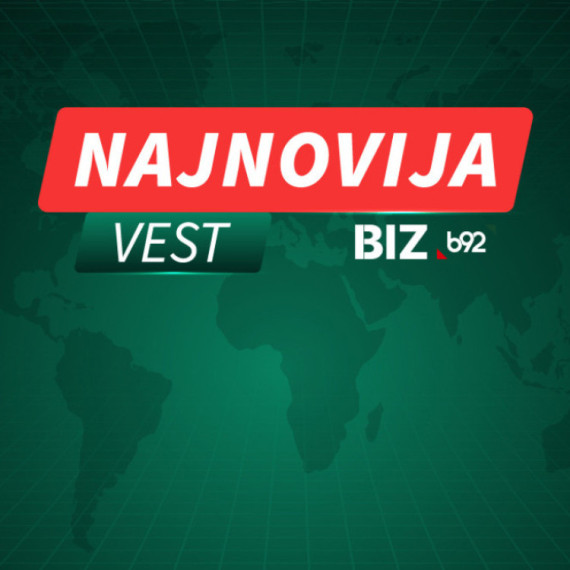
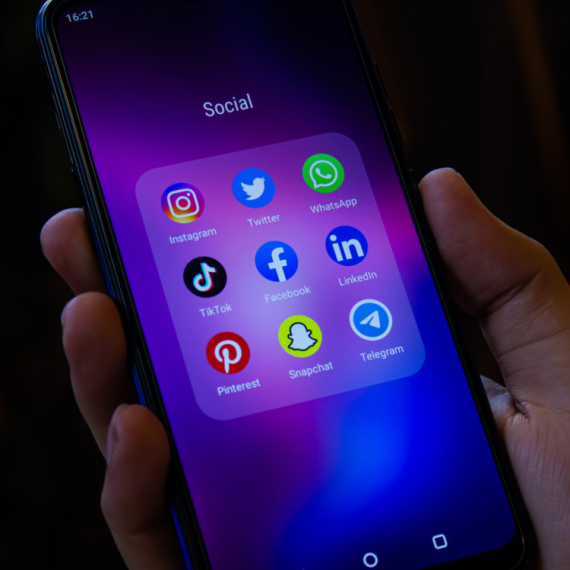
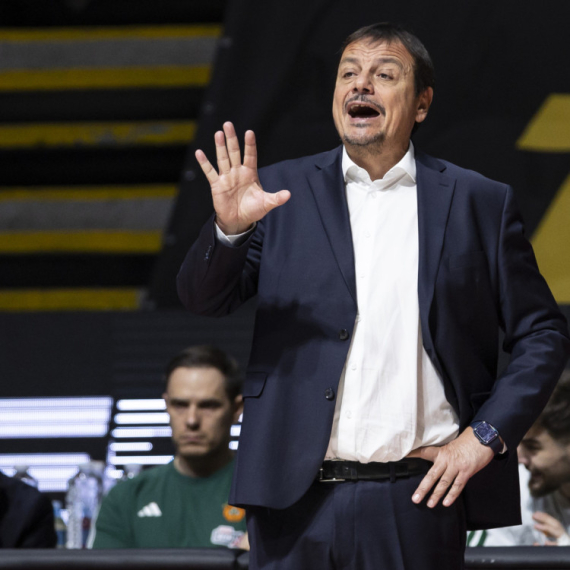
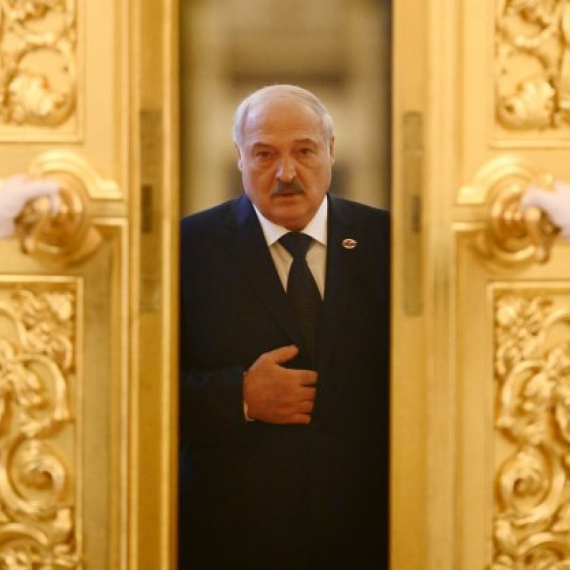


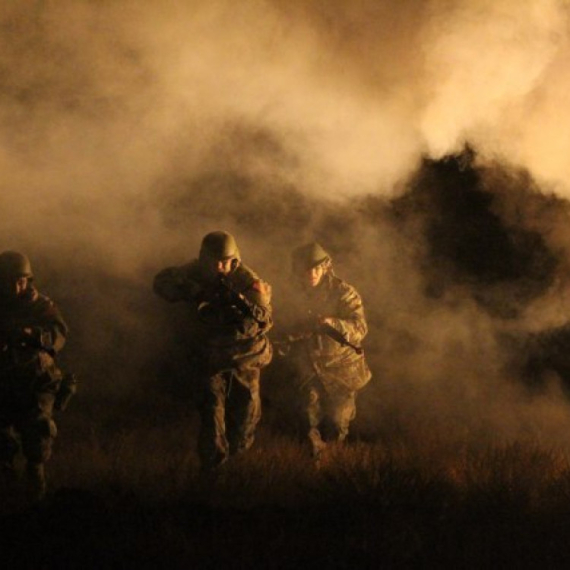
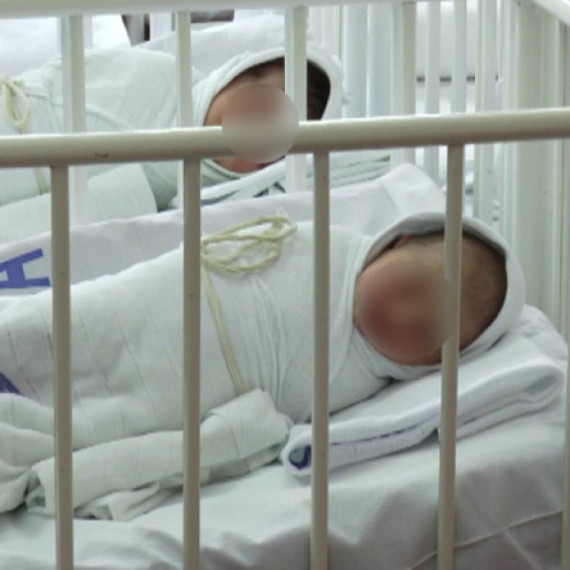

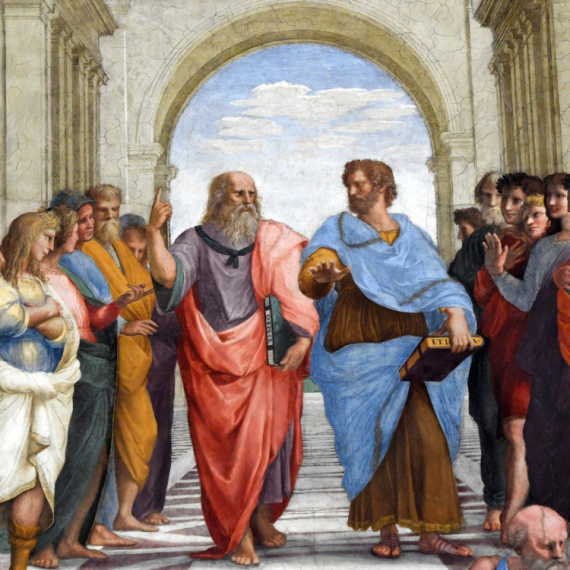
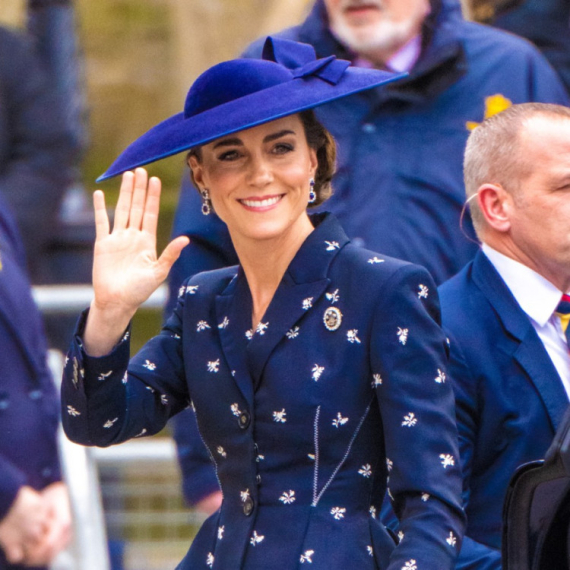

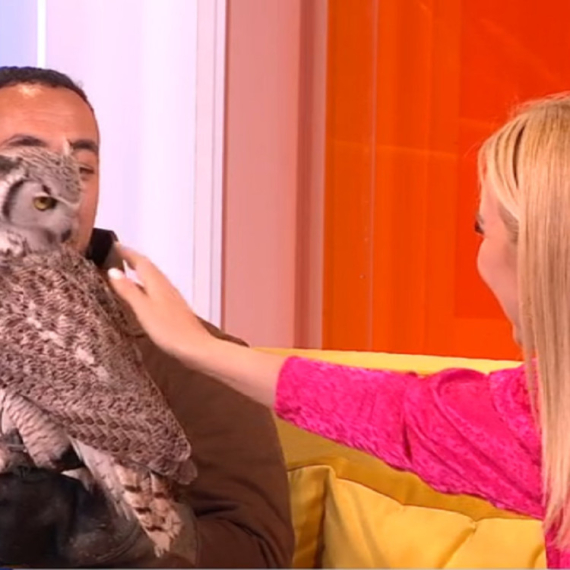














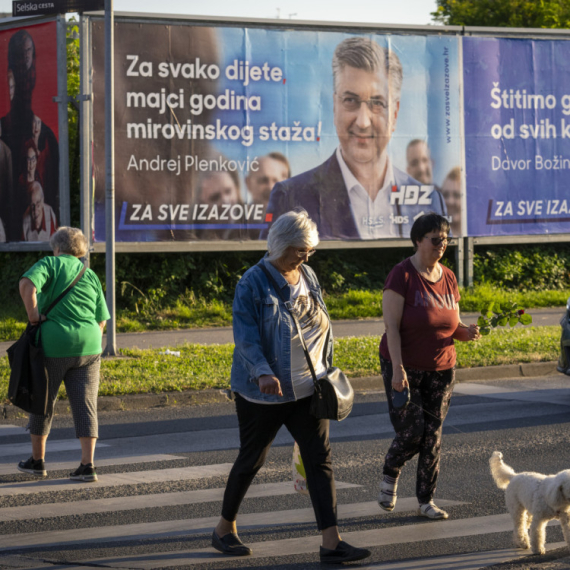




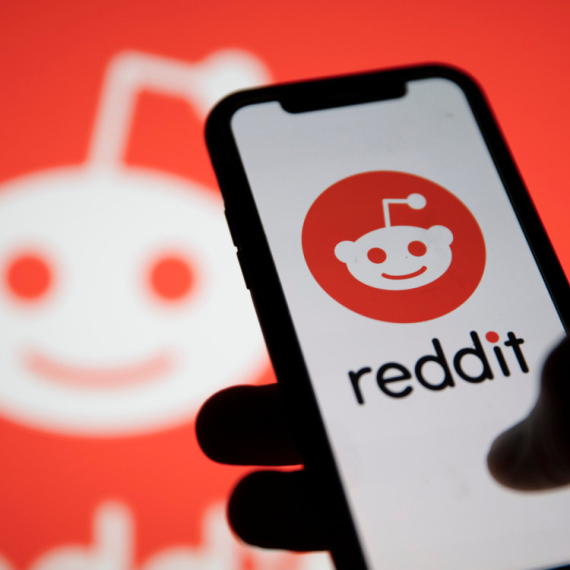












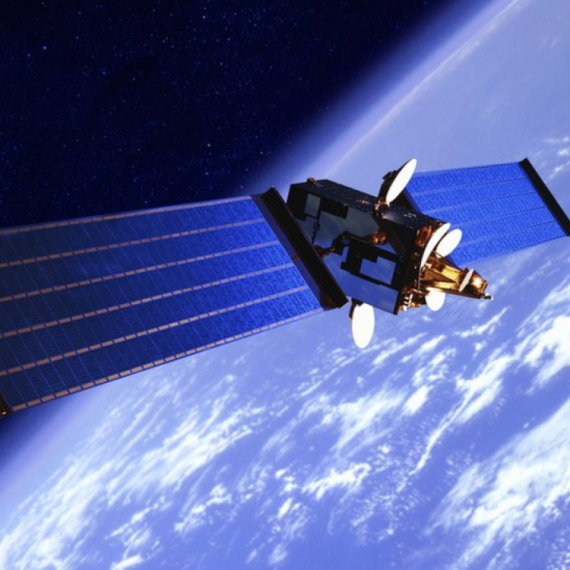

Komentari 8
Pogledaj komentare